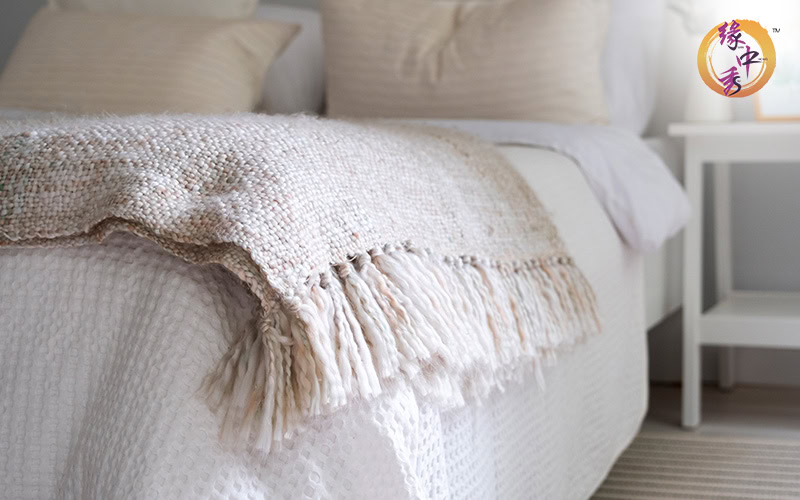Where Should You Place Your Bed? Feng Shui Do’s and Don’ts
Key Takeaways
- In Feng Shui, proper bed placement, such as using the command position, can enhance stability, rest, and energy flow in your bedroom.
- Avoid the “coffin position”, as placing your bed directly in line with the door can invite disruptive energy.
- A solid headboard and equal space on both sides of the bed promote emotional balance and relationship harmony.
- Mirrors facing the bed can disturb your sleep; reposition or cover them to maintain a calm environment.

Why Bed Placement Matters in Feng Shui
Where should you place your bed for better sleep and energy balance? In Feng Shui, the answer is far from random. The location and placement of your bed influence how Qi (energy) flows through your room—and, by extension, your life. From avoiding the “coffin position” to rearranging your furniture, here are key Feng Shui bed placement rules every homeowner should follow.
✅ DO: Place Your Bed in the Command Position
One of the core principles behind Feng Shui is the “command position”. Your bed should ideally be placed where you can see the door without being directly in line with it—this position enhances your awareness and sense of stability. To take it a step further, aligning your bed’s direction with your Bazi element can deepen the harmony in your space. For example, if your Bazi element is Wood, favorable directions include South (Fire), East or Southeast (Wood), and North (Water)—elements that nourish or support Wood. Sleeping in the command position fosters a sense of control, allowing you to feel more aware of any movement or energy entering the room. It’s not only a subtle yet powerful way to create more stability in your personal life, but it also helps to fully relax your mind and body.
❌ DON’T: Place Your Bed Directly in Line with the Door

On the other hand, placing your bed directly in line with the door is known as the “coffin position”. Feng Shui practitioners believe that this arrangement exposes you to excessive energy flow rushing in from the bedroom entrance. Over time, this can disrupt your rest, lead to fatigue, and create a lingering sense of instability.
If your room layout makes this position unavoidable, you can still minimize its effects. Placing a partition or screen between the bed and the door helps to buffer and redirect the energy, creating a more restful environment. Additionally, placing a Black Obsidian Hu Lu behind the door can help absorb and neutralize negative energy. For more tailored solutions, you may want to explore a Feng Shui consultation in Singapore to identify the best options for your space.
✅ DO: Have a Solid Headboard Against a Wall
A solid headboard backed against a sturdy wall represents stability, protection, and clear personal boundaries. It anchors your energy during rest, creating a sense of physical and emotional security.
In the same vein, do not place your bed under a window. Windows are natural pathways for energy movement, and sleeping directly underneath one can make you feel more vulnerable.
❌ DON’T: Place Mirrors Facing the Bed
A mirror directly facing your bed is one of the biggest “don’ts” when it comes to bed placement in Feng Shui. It is believed to reflect negative energy, which may lead to restless sleep, increased anxiety, and even trigger nightmares. Some experts even believe that it can contribute to tension or disharmony in relationships.
To maintain a calm and balanced energy in your bedroom, avoid positioning mirrors where they reflect your sleeping body. If repositioning isn’t an option, cover the mirror at night to reduce its energetic impact. A house Feng Shui master can assess your room layout and provide recommendations to restore harmony and support restful sleep.
✅ DO: Choose the Right Colours to Support Your Energy
In Feng Shui, colour is more than just decoration—it’s a powerful tool for creating balance and harmony. Each person is associated with a specific element based on their Ba Zi (birth chart), and selecting colours that align or harmonize with these elements can significantly improve the energy of your bedroom. For example, if one partner’s Ba Zi element is Fire and the other’s is Water, using Wood element colours—such as soft greens and gentle blues—can act as a bridge, supporting and balancing both energies. These colour choices not only enhance the Feng Shui of the space but also cultivate a sense of tranquility, emotional connection, and relationship harmony. Thoughtful use of colour can turn your bedroom into a peaceful retreat that nurtures both rest and connection.
Align Your Space for Rest and Renewal

Your bedroom should be a sanctuary, a place where you feel safe, supported, and recharged. By applying these Feng Shui bed placement tips, you create a space that not only looks harmonious but also promotes health, clarity, and emotional well-being.
If you’re looking to enhance the Feng Shui for your house, let Yuan Zhong Siu help. Our Feng Shui masters draw upon decades of experience to offer personalised advice for your living environment. Whether you’re facing layout limitations or seeking deeper insights into your optimal sleeping direction, our professionals can provide the clarity and guidance you need.
Book a consultation with us today.
